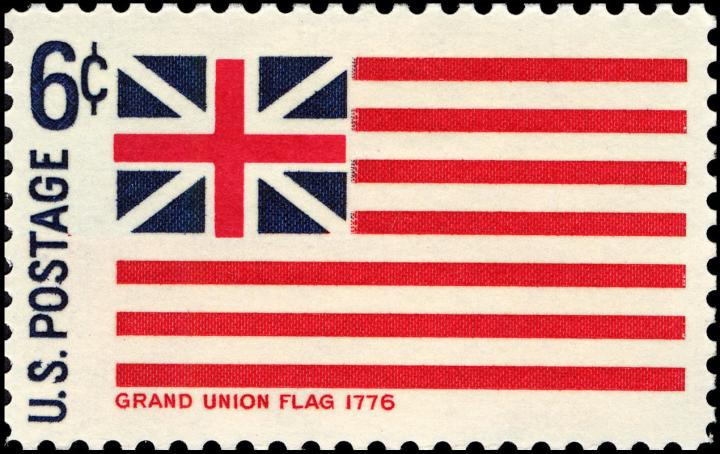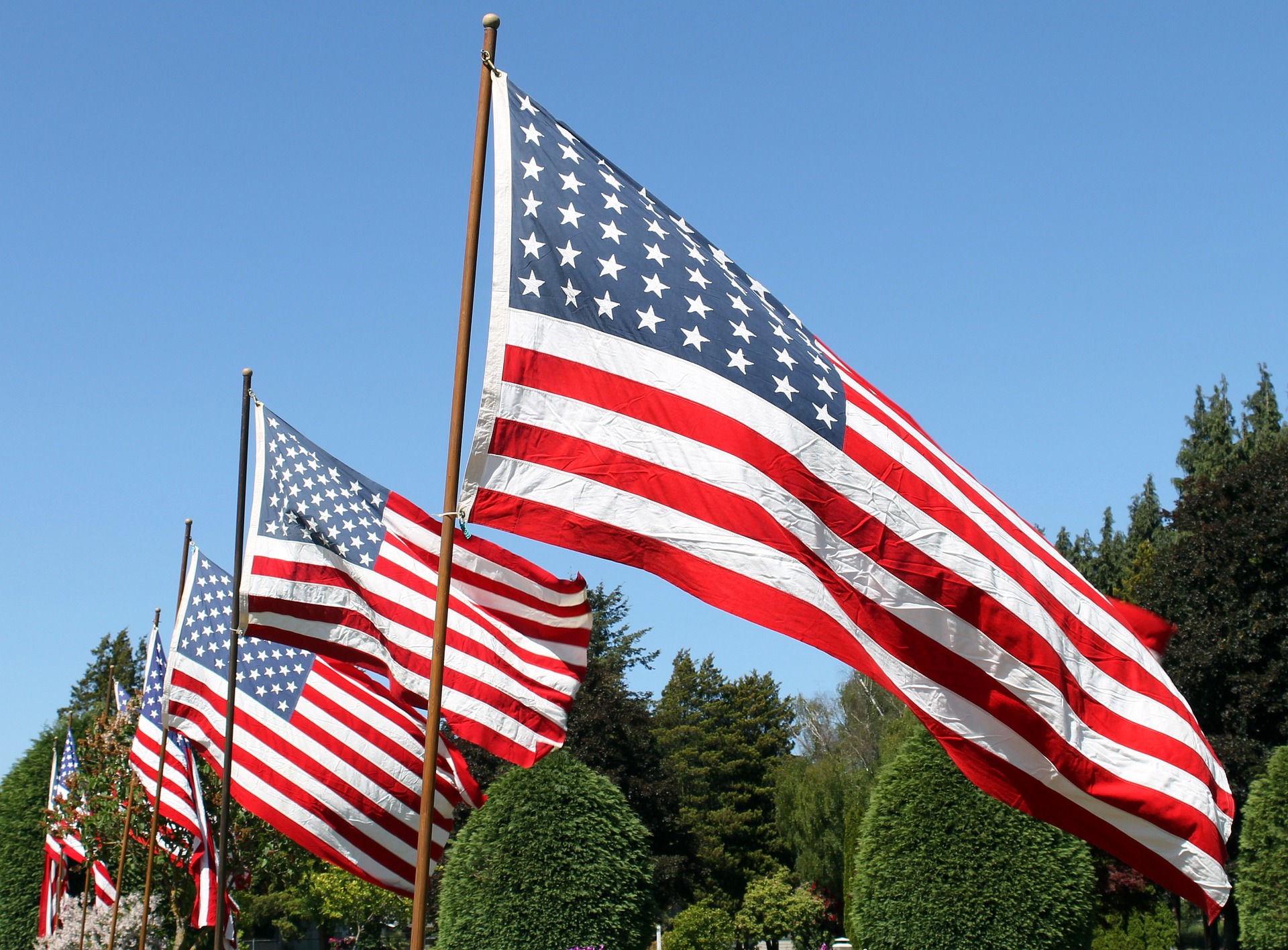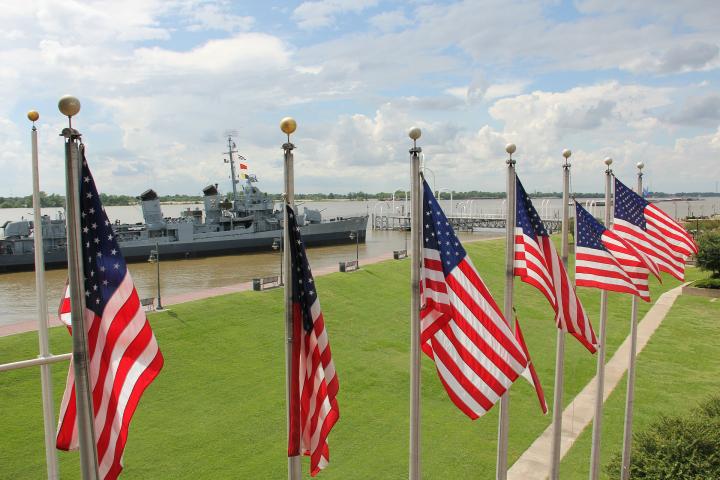Primary Image
Plus, 5 Fun Facts About Our American Flag
More Like This
I am second generation Hungarian. My paternal grandmother was born in the Austria-Hungary Empire. She age 13 immigrated to USA in 1899. After WWI she only spoke English as her country no longer existed.
My dad read as much as he could about Our revolution with Great Britain and our travels to most of the major battle sites. I was amazed how the men moved and the places cannon balls were made.
When I went to college in Philadelphia, PA, I took the opportunity to learn what took place in Carpenter hall and City Tavren to give birth to our country.
As I drove to work I passed Benjamin Franklin's grave and wondered what thoughts he would have on how our country has evolved.
I proudly display our flag and not a day goes by that I don't give thanks for everyone who fought and gave their all to keep those 13 strips and blue field of stars for every state together.
Demacracy we can have differing points of view it means flexibility and it remains that 13 strips and blue field of stars stay true together.
I'll bet that most anyone reading this comment has noticed the proliferation of these Gray or black-and-white representations of the US flag with one colored stripe. This must be stopped, it is an adulteration and desecration of the red white and blue as stated in the in the flag protection act and/or Rules of flag etiquette..
When you see this in your community call them out, do not allow it. Thank you, our country thanks you.
Makes me happy to see someone else is calling this out. Major violation of Flag Code. How can all these groups think they are American when they don't acknowledge this? 🇺🇸
Dear Editors,
In an earlier comment, I incorrectly stated that Charles Thomson was the consultant to the third Great Seal of the United States Committee. William Barton was the third consultant. However, both men did work on the U.S. Great Seal after the third Committee finished its work. I deeply apologize for the error. Earl P. Williams, Jr., U.S. flag historian (paleovexillologist)
Dear Editors:
Thank you for setting the record straight on Betsy Ross' contribution to the Revolutionary War. The following is FYI: (1) Continental Congressman Francis Hopkinson of New Jersey designed a flag for the United States and a flag for the U.S. Navy. Ironically, the latter flag became the prototype for the National flag. (2) Prior to Hopkinson's designs, the unofficial U.S. flag had 13 red-and-white stripes with the British Union Jack in the upper-left-hand corner (canton). It was called the Continental Colors, aka, the Grand Union Flag. (3) Red, white, and blue are traditional British colors. The U.S. Flag Resolution of June 14, 1777, did not indicate what the colors mean. The presumed meaning of red, white, and blue in the American flag really applies to the Great Seal of the United States. (4) The arrangement of 13 stars in a ring in early U.S. flags did not symbolize the equality of states vis-a-vis each other. Instead, it denoted the perpetuity and eternity of America, according to Charles Thomson, the consultant to the third Great Seal of the United States Committee. A ring denotes eternity. Earl P. Williams, Jr., U.S. flag historian (paleovexillologist)
Thank you for sharing the information about the history of the American Stars and Stripes Flag. Your love of your flag proves that you are a nation that is proud of its history. I now begin to appreciate the respect accorded the American Flag by all the citizens. I am sure every little child is taught all the important points about the American Flag from early age.
I wish we people of the African Continent could learn and adopt the best practice regarding our different country flags which are sometimes subjected to unnecessary and meaningless change by the government of the day.
I have an American Flag memento I bought while studying at University of Florida as far back as 1991 - 1994, and I have always cherished it without any knowledge of its historical background and how it should be hoisted. I am really impressed!
Keep this practice up and influence other governments on how to respect our national flags.
Thank you, and God bless!
Flag Day is a forgotten holiday that needs to be brought back to what it used to be a day to be proud to be an American. The last few years I didn't hear it mention on any of the news shows I saw. I remember Flag Day as the last day of school and after we had a ceremony for The Flag we were sent home for the summer, for my family it meant that we left Bridgeport, Connecticut to West Rutland, Vermont where we spent our summers to return on Labour Day and then back to school the next day.
We need a flag day that's held during the school year for a chance to be educated on the US flag and its history our elementary schools don't have the US flag in the classrooms. By state law they have to have one outside the building.
I disagree with changing the date of Flag Day so I can be taught in School. July 4th, Independence Day is taught in school. Simple add Flag Day information to the American History curriculum, which I must say has become pathetically lacking in recent years.
I too disagree with changing the date of Flag Day. It would be like changing Independence Day, just so it could be put in the history curriculum in schools. They're already changing what is taught about our history in schools, which needs to stop! Our Flag needs to be returned to classrooms.













Comments